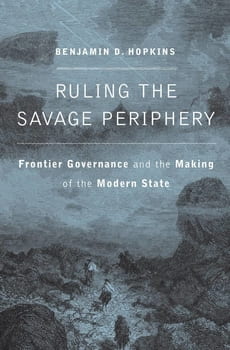Ruling the Savage Periphery: Frontier Governance and the Making of the Modern State
Director of the Sigur Center for Asian Studies, Benjamin D. Hopkins, releases his newest book on May 5, 2020 from Harvard University Press:
From the Afghan frontier with British India to the pampas of Argentina to the deserts of Arizona, nineteenth-century empires drew borders with an eye toward placing indigenous people just on the edge of the interior. They were too nomadic and communal to incorporate in the state, yet their labor was too valuable to displace entirely. Benjamin Hopkins argues that empires sought to keep the “savage” just close enough to take advantage of, with lasting ramifications for the global nation-state order.
Hopkins theorizes and explores frontier governmentality, a distinctive kind of administrative rule that spread from empire to empire. Colonial powers did not just create ad hoc methods or alight independently on similar techniques of domination: they learned from each other. Although the indigenous peoples inhabiting newly conquered and demarcated spaces were subjugated in a variety of ways, Ruling the Savage Periphery isolates continuities across regimes and locates the patterns of transmission that made frontier governmentality a world-spanning phenomenon.


